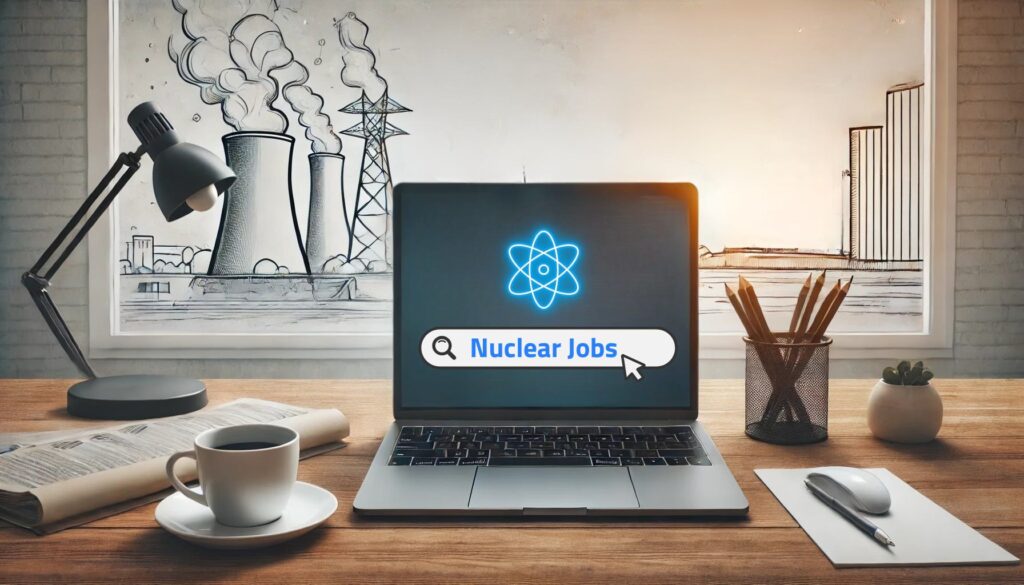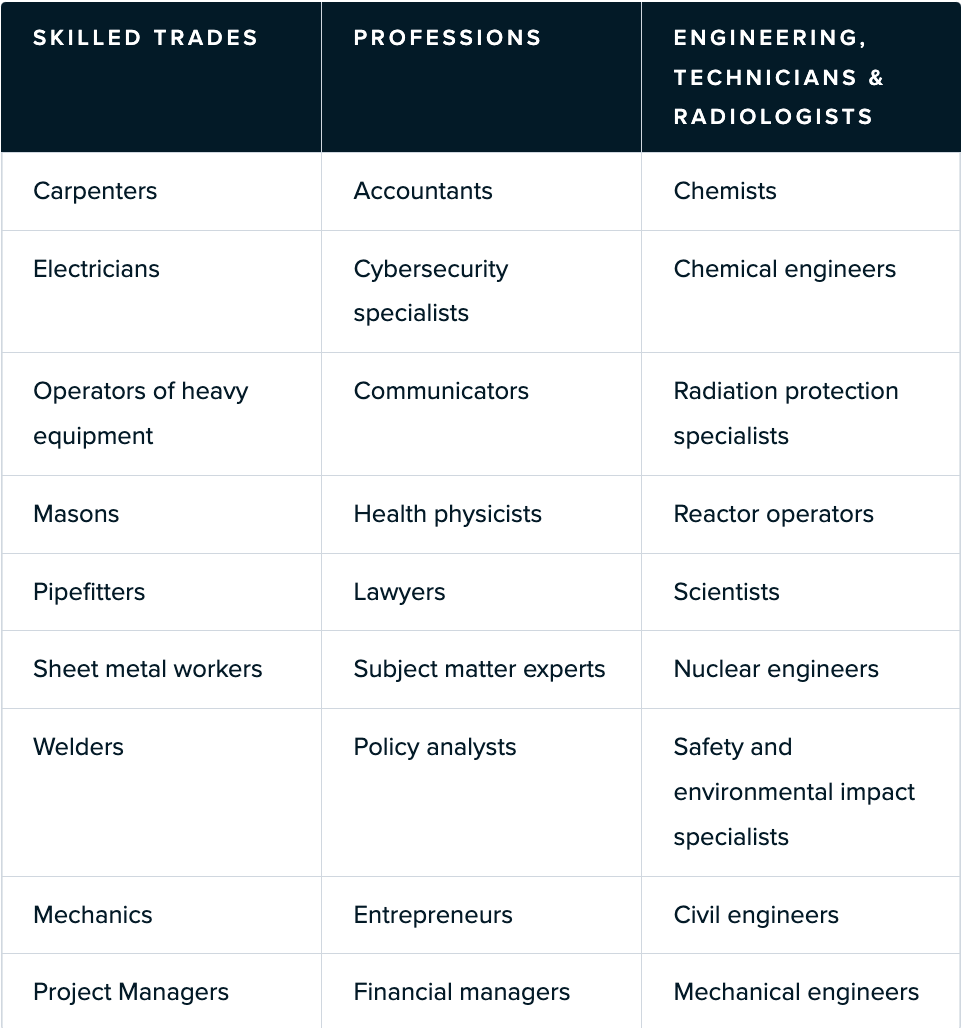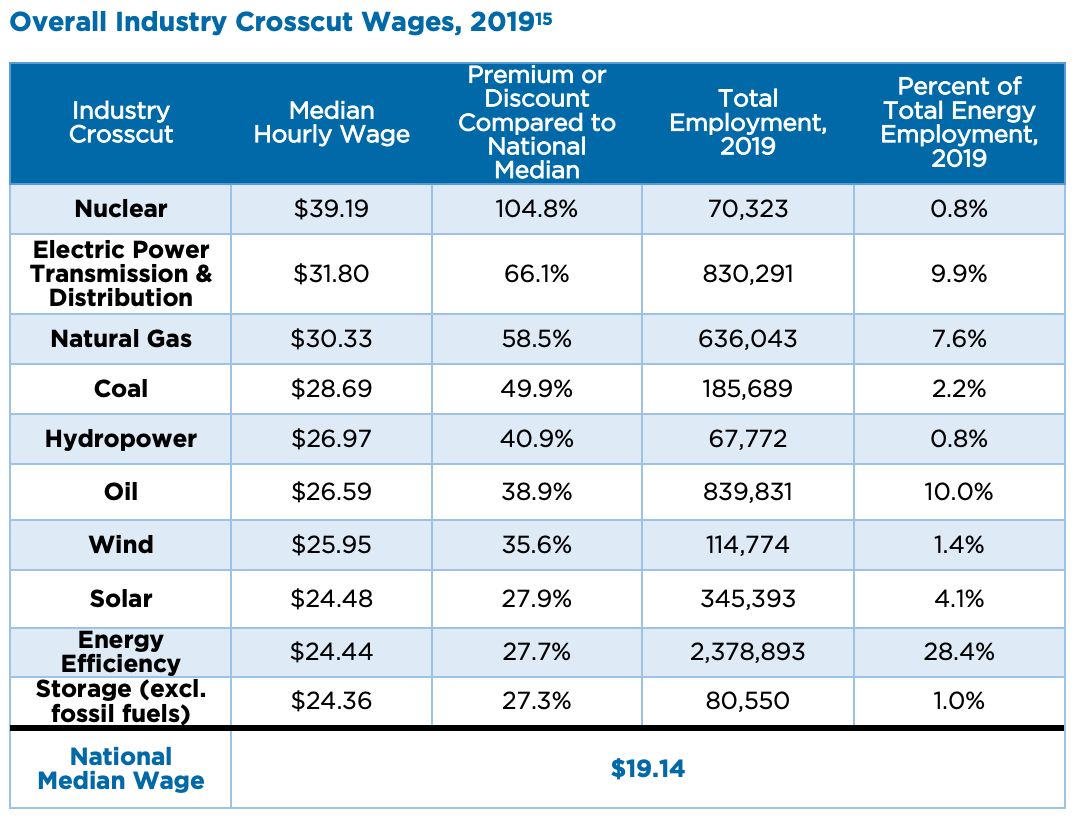Author: The Kernel & Madison Schroder

We’ve been getting a bunch of comments on our TikTok lately asking about careers in the nuclear energy industry. The timing couldn’t be better – according to the U.S. Department of Energy’s latest Pathways to Commercial Liftoff report, the US will need 700 to 900 gigawatts of additional clean firm power to reach net-zero emissions, and nuclear is poised to play a major role in meeting that demand. At the same time, much of the current workforce is poised to retire in the coming decades with insufficient numbers to replace them.
What Does “Working in Nuclear” Actually Mean?
A common thought for those interested in the nuclear energy sector is, “But I’m not a nuclear engineer!” Here’s the thing – you don’t have to be.
The nuclear energy industry offers diverse career paths across many disciplines, and most don’t require an engineering degree. The reality is that the nuclear energy sector offers opportunities for all educational backgrounds. According to the Nuclear Energy Institute (NEI), the industry directly employs more than 70,000 people in the U.S., and the majority of these positions don’t require a four-year degree. Many are well-paying union jobs accessible with a high school diploma or equivalent. Here are some key roles you might not have considered:
Reactor operators manage the plant’s essential functions, from controlling the reactor to monitoring sensor data. Entry requirements start with a high school diploma, followed by comprehensive employer-provided training. Many begin as non-licensed operators and advance to positions with increasing responsibility. While military experience (particularly Navy) is common, it’s not required.
Radiation protection technicians are central to plant safety. They monitor radiation levels, oversee safety compliance, and manage emergency preparedness protocols. This career is accessible with a high school degree plus specialized training, typically starting with a week-long certification course.
The industry also employs specialized divers for unique maintenance needs. Nuclear facilities use water from natural sources for cooling, requiring regular inspection of intake and outflow systems. Certified divers also conduct maintenance in spent fuel pools and other underwater facility areas. Training is available through community colleges and diving academies.
Welders perform critical maintenance throughout the facility. The extreme conditions in nuclear plants require regular inspection and maintenance of metal components, from pipes to reactor vessels. Entry paths include community college programs, technical training centers, and apprenticeships. Outage planners coordinate essential maintenance during refueling periods. With nuclear plants operating at 93% capacity, these planned outages every 18-24 months require precise scheduling and coordination. The role demands strong organizational and project management skills rather than engineering expertise.
Physical security comprises about 20% of plant staffing. These professionals manage facility access, protect sensitive areas, and safeguard nuclear materials. While a military or law enforcement background is valuable, it’s not mandatory. Construction workers are increasingly in demand as the industry expands. A single large reactor project requires approximately 7,000 workers during peak construction. Even with the trend toward smaller, modular reactors, skilled construction workers remain essential for industry growth. Here is a list of professions put together by the Nuclear Energy Institute.

Source: NEI 2024
Supporting roles include accountants, communications professionals, and project managers. NEI data shows that nearly one in four nuclear workers are veterans, reflecting the industry’s structured, safety-focused environment that values military experience
The Perks of Going Nuclear
Let’s talk benefits. According to the Department of Energy’semployment data and the U.S. Energy Wages, Benefits, and Change Report, nuclear workers earn salaries that are 50% higher on average than other electricity generation sources. These aren’t just jobs – they’re careers that can span generations since the Nuclear Regulatory Commission now licenses plants to operate for up to 80 years. Further, the industry’s economic impact is substantial, withNEI reporting that the industry spends approximately $11 billion annually on labor – that’s about $100 million per reactor per year.

Beyond competitive salaries and decades-long job security, nuclear facilities are unionized workplaces, with nuclear electric power generation having 19% of workers represented by unions and nuclear fuels having 17% – both significantly higher than the overall energy workforce average (11%) and national private sector average (7%). These strong collective bargaining agreements provide exceptional benefits packages, with union members enjoying comprehensive healthcare, substantial pension plans, and clearly defined paths for advancement. This makes nuclear the most heavily unionized energy technology across both power generation and fuel sectors.
The growth potential is equally impressive. The DOE’s 2024 report projects that data centers for artificial intelligence and high-performance computing alone could increase power demand by up to 20% in the next decade. This comes as the United States, along with more than 20 other nations, has committed to tripling nuclear energy capacity globally by 2050.
Breaking Into the Industry
Now for the big question, “How do I get started?”
The path depends on what interests you. If you’re drawn to the trades, many nuclear facilities work with local community colleges on specialized training programs. You can find a few examples of thishere, here, and here. A technical certificate or associate degree can open doors to roles like radiation protection technician or nuclear plant operator.
For those heading to college, degrees in nuclear, mechanical, electrical, and chemical engineering are all valuable paths that can lead to high-paying, stable jobs in the nuclear industry. However, it’s important to note that business, communications, environmental science, and other non-engineering majors also play crucial roles in the field. Many colleges host job fairs that showcase the diverse positions available, and the American Nuclear Society’s annual conference features its own dedicated job fair for networking opportunities.
Already working in another field? Your skills are valuable for the clean energy transition. The industry needs professionals with project management experience, quality control expertise, safety protocols, and regulatory compliance backgrounds. Whether from manufacturing, construction, IT, or other industrial sectors, your experience with complex systems, data analysis, problem-solving, and team coordination directly applies to roles in renewable energy, nuclear power, grid modernization, and energy storage. The transition particularly values those with backgrounds in engineering, operations, maintenance, environmental monitoring, and facility management.
Where to Look
Once you’ve decided on the path that’s right for you, the nuclear industry has several key job boards to explore. Here are a few
